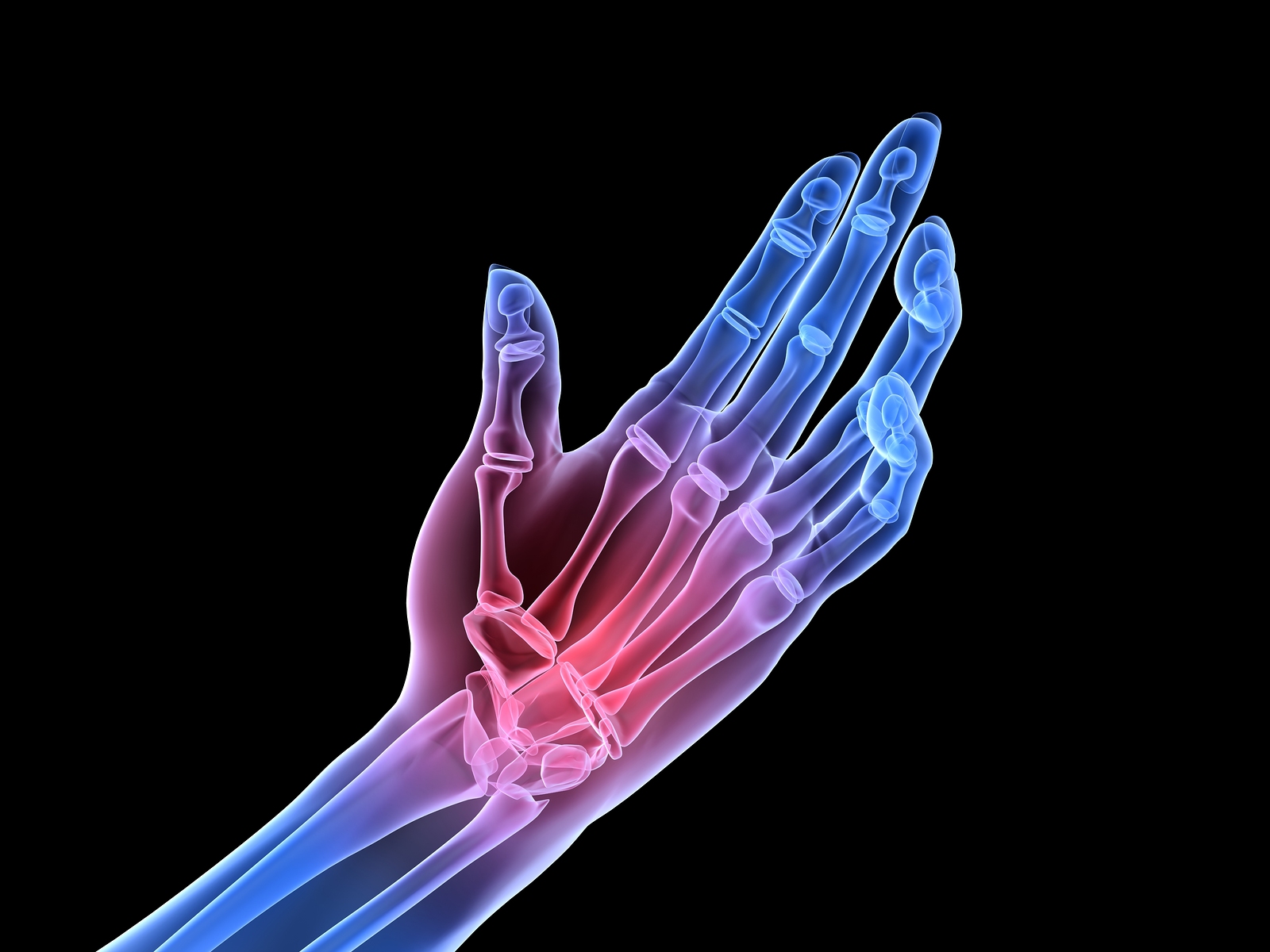
Arthritis is a painful disease that attacks the healthy tissue of your joints, causing pain, stiffness, reduced range of motion, and difficulties performing daily activities. While many areas of your body can be impacted by arthritis, the hand and wrist joints are among the most common. When pain strikes, it is important to seek the help of a hand physician that can diagnose and treat your specific condition and determine whether or not the pain’s root cause is a form of arthritis.
The three forms of arthritis that affect the hands are:
- Osteoarthritis – The most common form of arthritis that is a result of overuse, repetitive movement, and general wear and tear.
- Rheumatoid arthritis – Considered an autoimmune disorder that most commonly develops in the small joints of the hands.
- Psoriatic arthritis – Linked with psoriasis, a chronic skin and nail disease.
Risk Factors
Several risk factors may lead to the development of hand arthritis. Risk factors for osteoarthritis of the hand include family history, age, occupation, previous hand trauma, obesity, and more. Women are at an increased risk of developing the disease, with the risk increasing after menopause.
Risk factors for rheumatoid arthritis include family history, age, obesity, and smoking. Similarly to osteoarthritis, women are more likely to develop rheumatoid arthritis than men.
Psoriatic arthritis often develops several years after a diagnosis of psoriasis, but for some, the joint pain can begin prior to the appearance of skin patches or at the same time as they begin to appear. Risk factors for psoriatic arthritis include a diagnosis of psoriasis, family history, and age.
Hand Arthritis Locations
With hand arthritis, certain parts of your hand can be affected while other parts remain consistent in strength and health. Hand physicians perform examinations to detect the exact area of disease presence. The four most common areas of your hand that can develop arthritis include:
- The most common place for arthritis in the hand is the top joint of your fingers nearest your nails.
- Arthritis here can cause your finger to angle to one side or cause lumps and bumps and may be painful with use.
- The thumb base (where your thumb meets your wrist)
- Generally, if you have arthritis in your thumb you may find it difficult to use hand held appliances such as a can opener or troubles grasping a large cup.
- Knuckles (large joints of hand)
- Can cause lumps or nodules in your knuckles, causing pain and making it difficult to grasp objects, especially small ones.
- The middle joints of your fingers
- With arthritis in the middle joints, you will have difficulty grasping objects as well.
Diagnosis
There are several diagnostic methods that hand physicians use when diagnosing hand arthritis. With a proper diagnosis, hand physicians can understand where the arthritis is located, what type of arthritis is present, and the progression of the disease. Testing options may include:
- Grind Test – Assesses the integrity of the joint and checks for the presence of arthritis.
- X-Rays – Show osteophytes or bone spurs. Can also show if there is a decrease in joint space, which is indicative of loss of cartilage.
- Bloodwork-Specific factors can looked for to rule out rheumatoid arthritis.
Treatment
Although there is no medical treatment to reverse the effects of osteoarthritis, there are many forms of treatment that can reduce the symptoms and potentially slow down further damage. Your hand physician will create your treatment plan based on your goals and severity of symptoms. Treatment will depend on the type of arthritis you have, the location of the arthritis, the stage of disease progression, and your general health. Treatments can range from activity modification and splinting to surgical procedures depending on the severity of your case. Your Iowa Ortho physician will discuss all options with you and help you choose the best treatment route for your lifestyle.
You can request an appointment with an Iowa Ortho hand physician by calling 515-247-8400 or request an appointment on our website.
